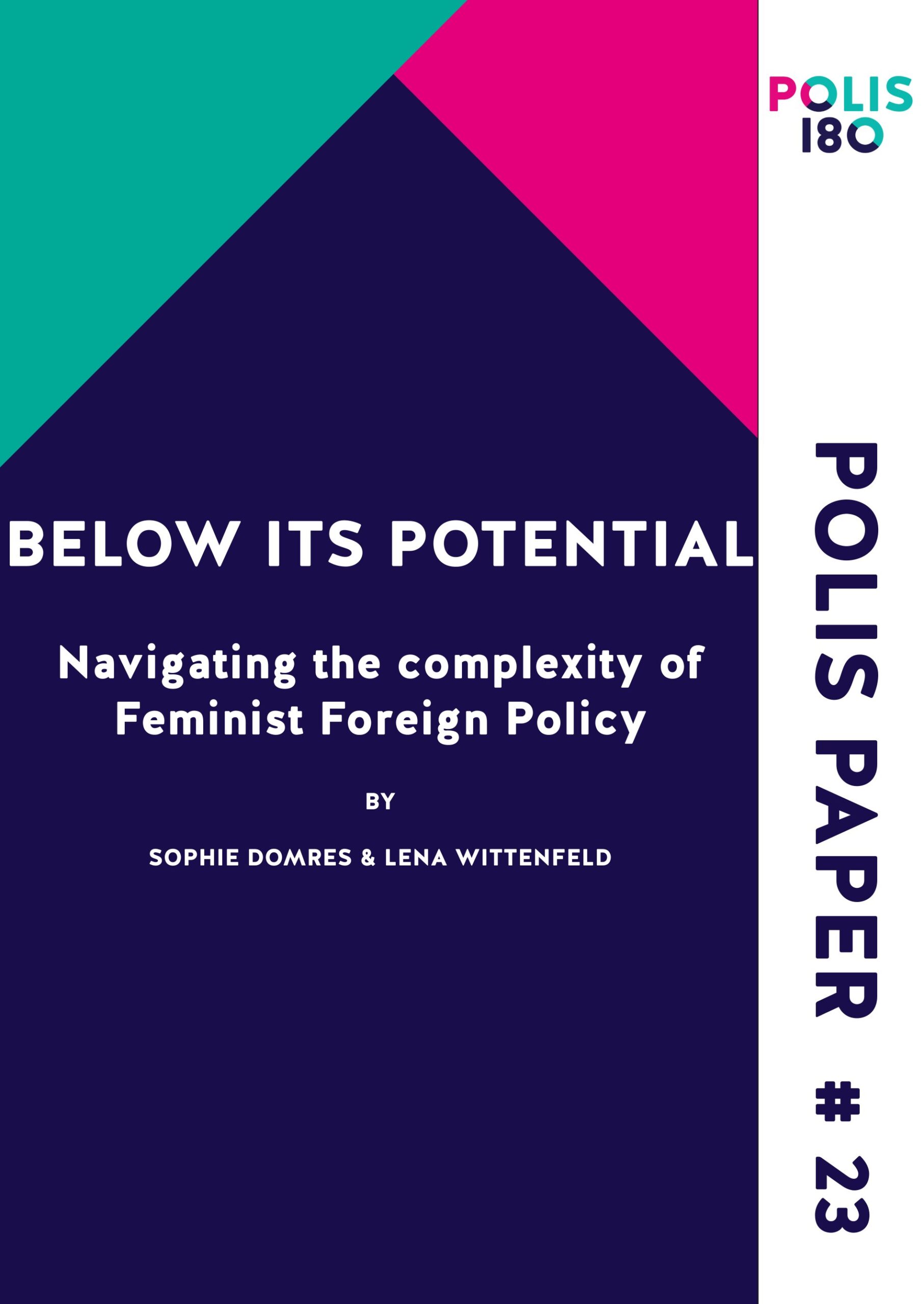By Sophie Domres & Lena Wittenfeld
10.10.2023
While Feminist Foreign Policy (FFP) as a normative foreign policy approach gains global traction, its application often remains superficial, leading to varied interpretations, limited impact and various tensions. This paper comprehensively unveils the discourses surrounding FFP, highlighting its (in)consistent yet transformative potential. We initially argue that FFP’s shift towards an inclusive, human-centred security approach essentially requires its coherent and thorough implementation. Following, FFPs plea to intersectionality is indispensable to put marginalised individuals and experiences at the centre of all policy decision-making. A distinct division between civil-societal and -scientific FFPs and state FFPs is evident, resulting in varying considerations, expectations and requirements. Therefore, and as outlined in the fourth chapter, FFPs’ transformative narratives are caught in tensions of (in)consistency and dissonance. This is due to the fact that academic and civil society’s demands on FFP are more complex and more transformative than states’ approaches and implementations of FFP. Ensuing, FFP’s seemingly captivity between issues of realpolitik and its transformative aspirations as a power- and system-critical and feminist approach is further discussed in the fifth chapter. Critically enriching our understanding of FFP, dialogue and reflection should be stimulated, and a new course for FFP is sketched. Therefore, dissonance does not necessarily pose an obstacle to FFP as its great potential lies in its complexity as long as it is navigable.
Sophie Domres (she/her) holds a Bachelor’s and Master’s degree in International Relations along with a certificate in Interdisciplinary Gender Studies. She has worked with numerous international NGOs and presently works as a Policy Advisor in the German Parliament. Since 2020, she has been a contributing member of Polis180’s Gender and International Politics program. Sophie and Lena are Sylke Temple Fellows for 2023/24, researching security policy in the context of feminist foreign policy.
Lena Wittenfeld (she/her) graduated in March 2023 with a Master’s degree in „Democratic Governance and Civil Society“ at the University of Osnabrück. Currently, she works as research associate at the University of Bielefeld and prepares her doctoral thesis on Feminist Foreign Policy. In her research, Lena focuses on topics in the intersection of Political Theory, International Relations and Gender Studies concentrating on scholarly issues in feminist International Relations, in (feminist) foreign policy, in feminist theories, and in intersectional as well as postcolonial feminisms. Lena also serves, among other things, as co-program director of the Gender and International Politics program at Polis180 e.V. She is currently a Sylke Temple Fellow for 2023/24. Together with Sophie, she is researching disarmament and security issues in the context of feminist foreign policy.
